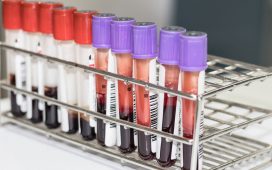The Texas Supreme Court ruled in favor of the state’s ban on gender-affirming care for minors on Friday, blocking access to puberty blockers and hormones for transgender youth.
Governor Greg Abbott signed the ban into law last September, forcing healthcare providers to “wean” trans youth off of their medications. The ban also prohibited gender-affirming surgeries for trans youth; a study published Thursday found that such surgeries are vanishingly rare among trans youth, but are more commonly performed to affirm cisgender teens’ gender expression.
In August, a district court blocked the care ban, finding that it “interferes with Texas families’ private decisions” regarding their children’s medical care. But the all-Republican Texas Supreme Court agreed to hear an appeal from the state in January, and this week ruled in favor of the ban in an 8-1 decision.
Writing for the majority, Justice Rebeca Aizpuru Huddle called the ban a “permissible, rational policy choice” by lawmakers due to the “relative nascency of both gender dysphoria and its various modes of treatment.” In fact, hormone therapies have been used to treat gender dysphoria since the 1960s, and puberty blockers have been prescribed to young people, mostly cis children experiencing early puberty, for more than 40 years. Still, Huddle ruled that that government’s “interest in protecting children from harm” allowed the legislature to pass such a ban, and that the plaintiffs — medical professionals and parents and guardians of trans youth living in Texas — did not demonstrate that their constitutional rights had been violated, overturning the district court’s injunction.
In her lone dissenting opinion, Justice Debra Lehrmann wrote that the gender-affirming care ban “is not only cruel — it is unconstitutional.” Lehrmann criticized the majority for drawing a false comparison between medical care and getting a tattoo, writing that her fellow justices used non-medical precedent to settle a matter of medical rights. She also called out the court’s “one-sided concern” regarding the effects of gender-affirming care (which Huddle termed “permanent adjustment[s] to the human body”), pointing out that “categorically denying children medical treatment for their gender dysphoria can be equally irreversible.”
“The State’s categorical statutory prohibition prevents these parents, and many others, from developing individualized treatment plans for their children in consultation with their physicians,” Lehrmann wrote, “even the children for whom treatment could be lifesaving.”








